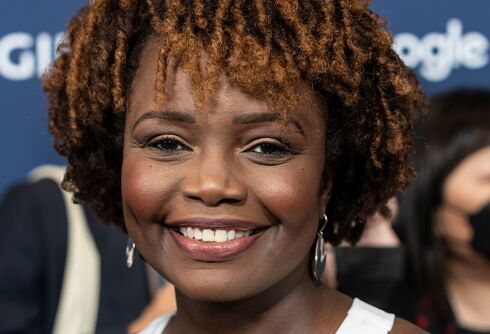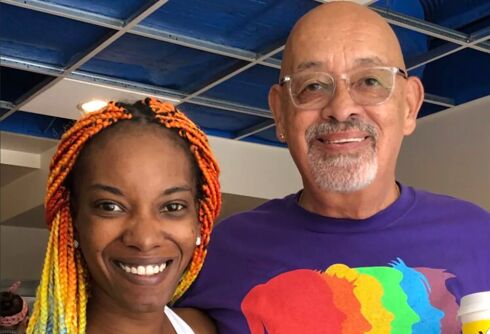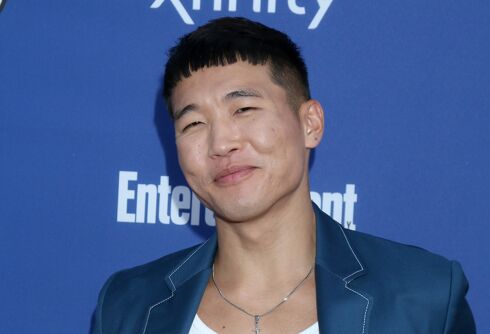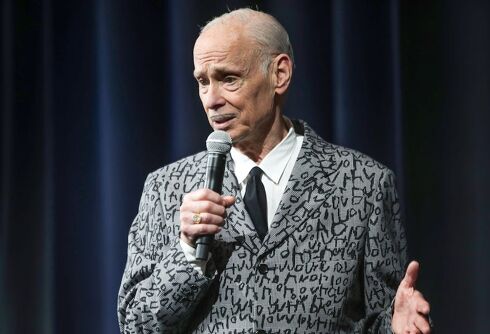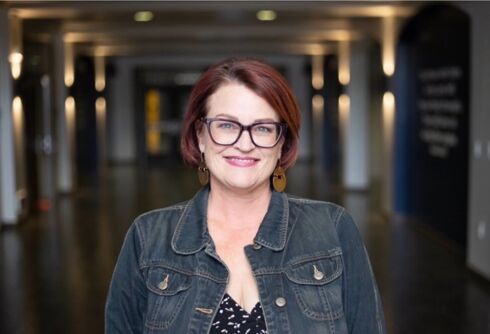Fellow author Jeffrey Ballam and I share many characteristics. We are both gay men, debut novelists, human rights advocates, twitter friends, and have undergone the grieving process, with each of us experiencing a partner’s death due to HIV/AIDS.
I have been curious to discover more about his journey, and recently we met at the West Hollywood Book Fair to chat further about love, loss, and the power of the written word, as well as his just released novel, “Out of the Past.”

Kergan Edwards-Stout: Some people have been writers their whole lives, but–like me–you came to writing later in life, having had other careers. What lead you to writing?
Jeffrey Ballam: I’d always enjoyed creative writing in school, and pushed myself to be as creative as possible. When I came out, I began writing poems as a catharsis for understanding my new feelings and reconciling my faith and my sexuality. Being a born-again Christian with early Mormon roots, you can see the need to do so…
Never Miss a Beat
Subscribe to our newsletter to stay ahead of the latest LGBTQ+ political news and insights.
KES: I can imagine!
JB: What about you? Why did you start writing?
I’ve always been involved in the arts, but never really saw writing as a venue for me. I worked with some amazing playwrights, such as Michael Sargent, who has such a specific, visceral style, that I wasn’t sure how I could ever compete on that level. What I later realized was that it wasn’t about competition. In telling my own stories, my style naturally evolved, and I found my own specific voice.
 Your novel, “Songs for the New Depression,” is the story of a man who comes to terms with his past as he prepares to die. It is also a tribute to your first partner, Shane Sawick, who passed away due to complications from AIDS.
Your novel, “Songs for the New Depression,” is the story of a man who comes to terms with his past as he prepares to die. It is also a tribute to your first partner, Shane Sawick, who passed away due to complications from AIDS.
Shane died in 1995, and while I took me a while to process and determine exactly how, I knew that I wanted to find some way to honor him, as well as other friends, lost far too young. Then, one day, a line popped into my head. I didn’t know who it was or what they were talking about, but that line eventually morphed into the first sentence in the novel.
I know, Jeff, that you lost a partner to AIDS/HIV as well…
Yes, but I was at a point where I was beginning to realize I had outgrown the relationship and was preparing to leave when he was diagnosed in 1992, so I stayed until he died in 1994. Given that, and that I am recently divorced, I completely understand that pain of loss and letting go. Your novel is really about your lead character, Gabe, and his attempts to come to terms with his impending death. Is that related to your letting go of Shane?
The act of writing the novel was a way of letting go. But I also have found myself, having grown up in the AIDS era, preoccupied with the reasons we live, and the reasons we die. I wanted to write a cautionary tale, about seizing and embracing the moment, and correcting mistakes, before it is too late. And that desire for redemption led to Songs for the New Depression.
The AIDS pandemic is such a difficult and emotional issue to tackle. What has the reaction been to that particular dimension of the story?
For those readers that lived through it, I continually receive wonderful notes, thanking me for capturing that moment in time. But I’ve also heard from others, “Oh, your novel sounds great, but depressing.” While I don’t see it that way, as I feel it ultimately challenges people to live more authentically and freely, I also realize that an “AIDS novel” is not an easy sell. My hope is that people will read it and think, “I don’t want my life to be wasted,” and embrace the here and now…
And I think it does that.
 What about you? What inspired you to write Out of the Past?
What about you? What inspired you to write Out of the Past?
Believe it or not, it started with a dream. In 2008, I woke, remembering a dream which I felt would make a good story, and I simply sat down and wrote it. Once that dam burst, the tale came flooding out.
Without giving too much away, what is the book about?
It focuses on a young man, Paul Vanderwall, who has to come to terms with his fears of moving forward into a new relationship, and ultimately, to come to terms with himself. In that way, he’s like your character, Gabe.
Paul is both a schoolteacher and coming out of a broken relationship, as are you. Where do the similarities between the two of you begin, and where do they end?
We are very similar, in those respects, and neither of us is looking for a relationship. Paul had closed himself off to the idea, and was caught by surprise. We are both very romantic, though he is a bit more open to the idea of a relationship. I’m not sure if there are any differences, other than age. He’s a lot younger than I am. I’m in a neutral place right now, if I meet someone who interests me, great. If not, great.
Has your ex-husband read the novel?
I’m not sure. We were together when I wrote it, but he couldn’t read it as he felt that I didn’t divorce myself enough from Paul where he could see a clear differentiation between the character and the writer. But, in a way, I think he’s right. Paul and I do share similar views on relationships and we’re both very romantic, though Paul has a bit more of an adventurous spirit. Even though we were together when I wrote it, and our divorce was not the most amicable, he does seem interested in its success. Whether he’s read it now, I don’t know. He seemed shocked when I said it would be published.

Is being a romantic one of your defining characteristics?
I think it is. A friend defined me as a romantic, yet one who is realistic. In the book, I tried to capture some of what romance and realism mean to me.
Has it been difficult, juggling your competing demands of writing, teaching, and personal life?
The children of today are the leaders of tomorrow, so I try to make sure that my students receive enough attention, and that I am well-planned and organized for my next day’s lessons. My four-legged children come next, as they don’t understand why I can’t play with them all the time. Writing, right now, takes a back seat to everything.
I know you love teaching, but do you foresee a point where writing becomes your primary focus?
Possibly, when I retire. But you have a full-time schedule as well! You have a job, a partner and two beautiful children, not to mention your writing for several websites. And I understand you’re working on something new as well. “Gifts Not Yet Given“?
It’s a collection of short stories, all themed to holidays, and will be coming out next year. I kind of see it as “holiday stories for the rest of us.” The characters are a mixture of gay, straight, young, old, and yet the tales capture that warm, bittersweet tone of the holidays, as each character experiences some form of personal awakening.
How do you find the time to do it all?
Late nights — and lots of Chardonnay! (laughing) Like you and your students, our kids come first. My main job is to make sure they are well-cared for, and I love it. Writing comes far behind, but at some point, when the kids are older, I’d like it to move up in line.
I know what you mean!
So if someone said to you, right now, “I can give you either love or a career as a writer, but not both,” which would you choose?
Being the hopeless romantic that I am, I’d have to go for love.






